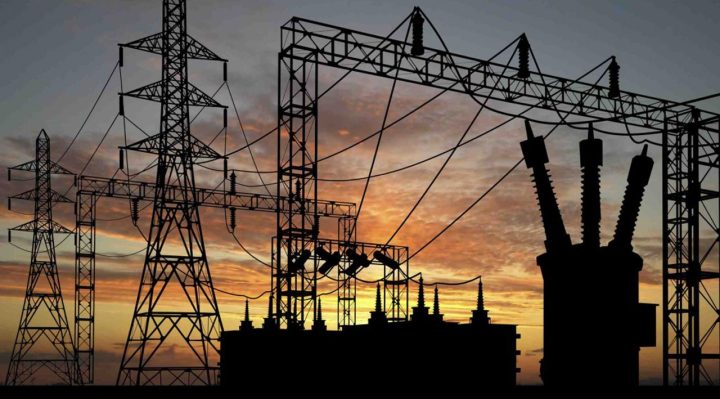The Rural Electrification Agency held a roundtable meeting with Energizing Economies Initiative (EEI) Private Power Developers at the Corporate Headquarters on March 24, 2022.
Discussions at the roundtable were centered on identifying implementation gaps, improving service delivery and strengthening of the initiative to achieve the desired goal of providing constant and reliable electricity in economic clusters across the Federation.
The Energizing Economies Initiative (EEI) is a Federal Government of Nigeria (FGN) initiative being implemented by the Rural Electrification Agency (REA). The focus of the EEI is to electrify economic clusters in Nigeria – which include markets, shopping plazas/complexes and industrial clusters in line with the FGN’s goal of increasing electricity access.
The REA is mandated to implement the initiative through Technical Assistance to private project developers; this includes identification and audit of economic clusters, facilitation of engagement with key stakeholders and technical support for project development and operation.
Over 300 clusters have been identified for electrification across the country in different phases. So far, over 12,000 shops are now receiving clean, safe, reliable and affordable electricity supply.
At launch, the Pilot Phase of the Energizing Economies Initiative has commissioned the Sura Shopping Complex Independent Power Project in Lagos State powering 1,047 shops, as well as the Ariaria International Market (Independent Power Project), Aba, Abia State, powering over 4,000 shops. Also, launched were over 6,000 energized shops at Sabon Gari market, Kano State with more connections in the pipeline.
The EEI developers were sufficiently represented at the Roundtable, with representatives from Ariaria International Market Energy Solutions (AMES) Limited, Solad Integrated Power Solutions Limited, Rensource Energy Limited and Green Village Electricity (GVE) Projects Limited all present at the REA.
In the course of discussions at the Roundtable, the setbacks faced by the Private Developers as stated by their representatives include; technical and legal solutions to customer bypass, funding constraints, gas unavailability, power shortage and system collapse due to system capacity, inadequate provision of metering, electricity vending system issues and challenges with customer service delivery.
The Agency while acknowledging the challenges faced by the Developers, reiterated the need for them to deliver on their obligations as enshrined in their bilateral and tripartite agreements. It emphasized that some obligations are not being met by the Developers in view of the performance of their projects. In addition, some of these challenges are externally induced (such as gas aavailability constraints). However, many of these challenges are within the Developers control and they must do more to mitigate these and get their projects back on track.
The Agency advised the Developers to strengthen their communication culture by proactively updating their customers on key information and/or technical issues in order to keep their stakeholders up-to-date, per time.
While responding to the challenges raised by the Agency, the private developers agreed to step up towards ensuring the issues are addressed and services improved in all affected markets, while such efforts will further service as mitigation measures in upcoming EEI projects.
The REA pointed out that it is currently conducting Monitoring, Evaluation and Learning (MEL) Exercise on the EEI Markets. The output of the work will help inform REA on how best to support the initiative as well as existing projects.
The Federal Government is keen on the success of the initiative and the REA plans to create an enabling environment where the Private Sector Developer handles all the project delivery steps from inception to conclusion.
Deployment is currently ongoing in markets under Phase 1 of the EEI. In 2019, a Tripartite Agreement between Abuja Electricity Distribution Company (AEDC), Green Village Electricity (GVE) and Wuse Market Association was signed for the development of 1MW Interconnected Mini-grid.
The Phase 2 rollout plans are currently in view and conversations have begun between the Developers, State Governments and other key stakeholders. Baseline Surveys and Energy Audits are currently being conducted for 98 Markets across the country. The Agency is also exploring ways to secure concessionary finance and Technical Assistance to further support EEI Developers.
Rural Electrification Agency (REA) is the Implementing Agency of the Federal Government of Nigeria (FGN), under the Federal Ministry of Power, tasked with the electrification of unserved and underserved communities with the aim to catalyze economic growth and improve quality of life for Nigerians.
The REA is currently administering the Rural Electrification Fund (REF) and implementing the Nigeria Electrification Project (NEP) and a number of initiatives in furtherance of its mandate: Energizing Education Programme (EEP), Grid Extension (Capital Projects), Energizing Economies Initiative (EEI), Solar Power Naija Programme, Energy for All – ‘Mass Rural Electrification’ and Research and Innovation Hub.
The Agency is responsible for creating an enabling environment for private sector-led projects, which includes conducting pre-feasibility assessments, energy audits, enumeration, data analysis, identification of qualified private sector developers, and project stakeholder engagements and community engagements for awareness creation.
To give effect to some of its initiatives, REA has obtained financing amounting to $550 million ($350 million from the World Bank and $200 million from the African Development Bank) for financing the Nigeria Electrification Project, and an additional $11 million for financing the Rural Electrification Fund for the deployment of Solar hybrid mini grids and solar home systems. These funds will ensure that millions of Nigerians have access to clean, safe, reliable and affordable electricity.

